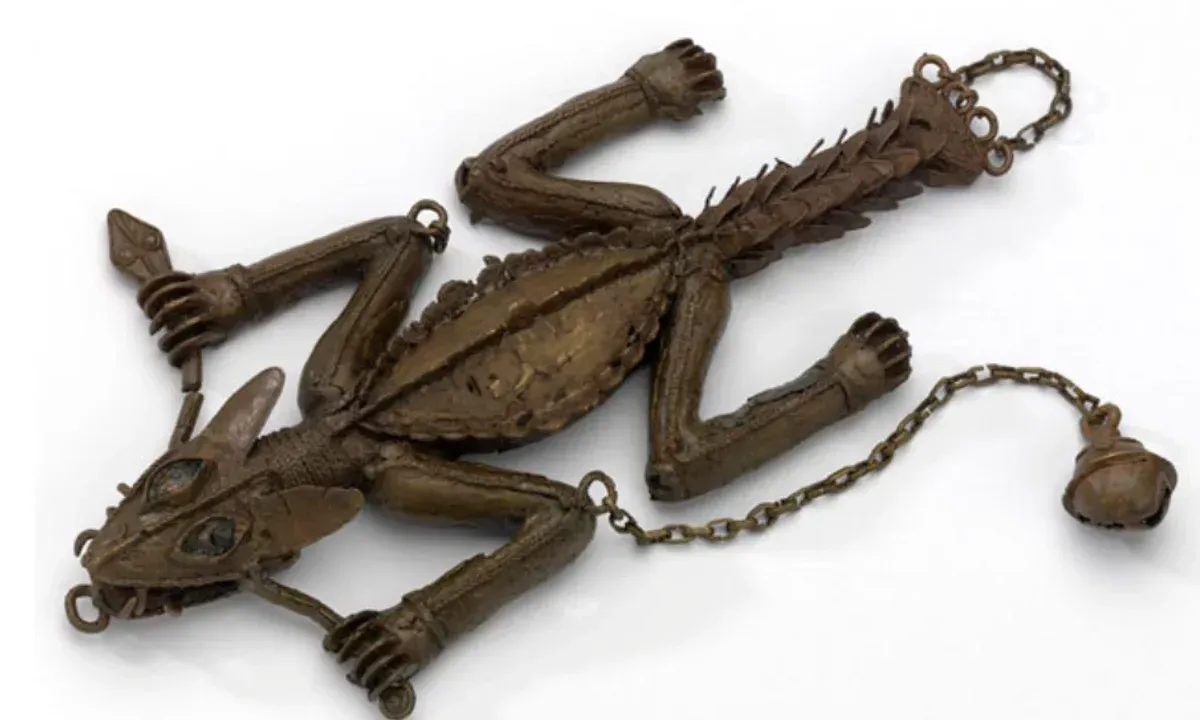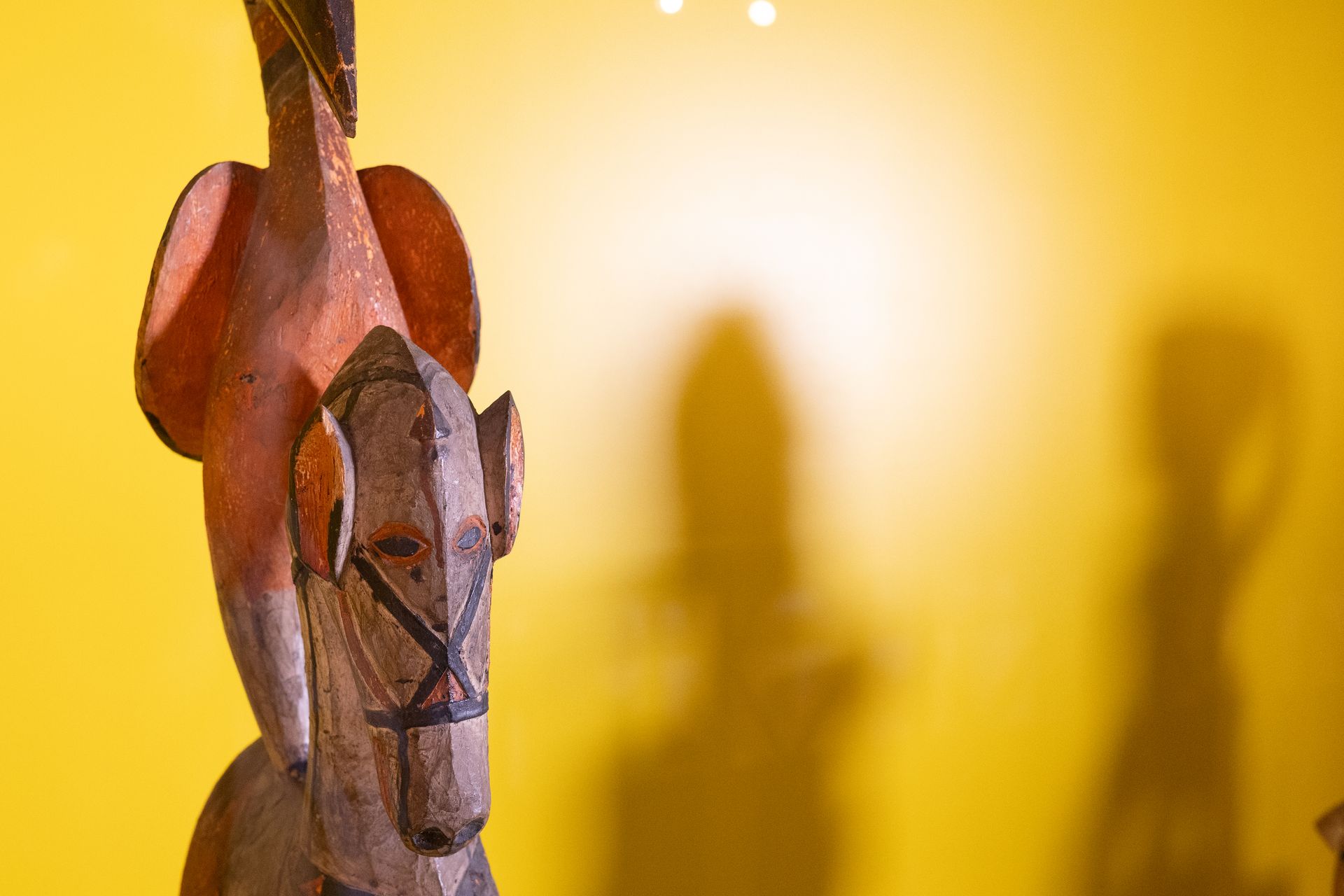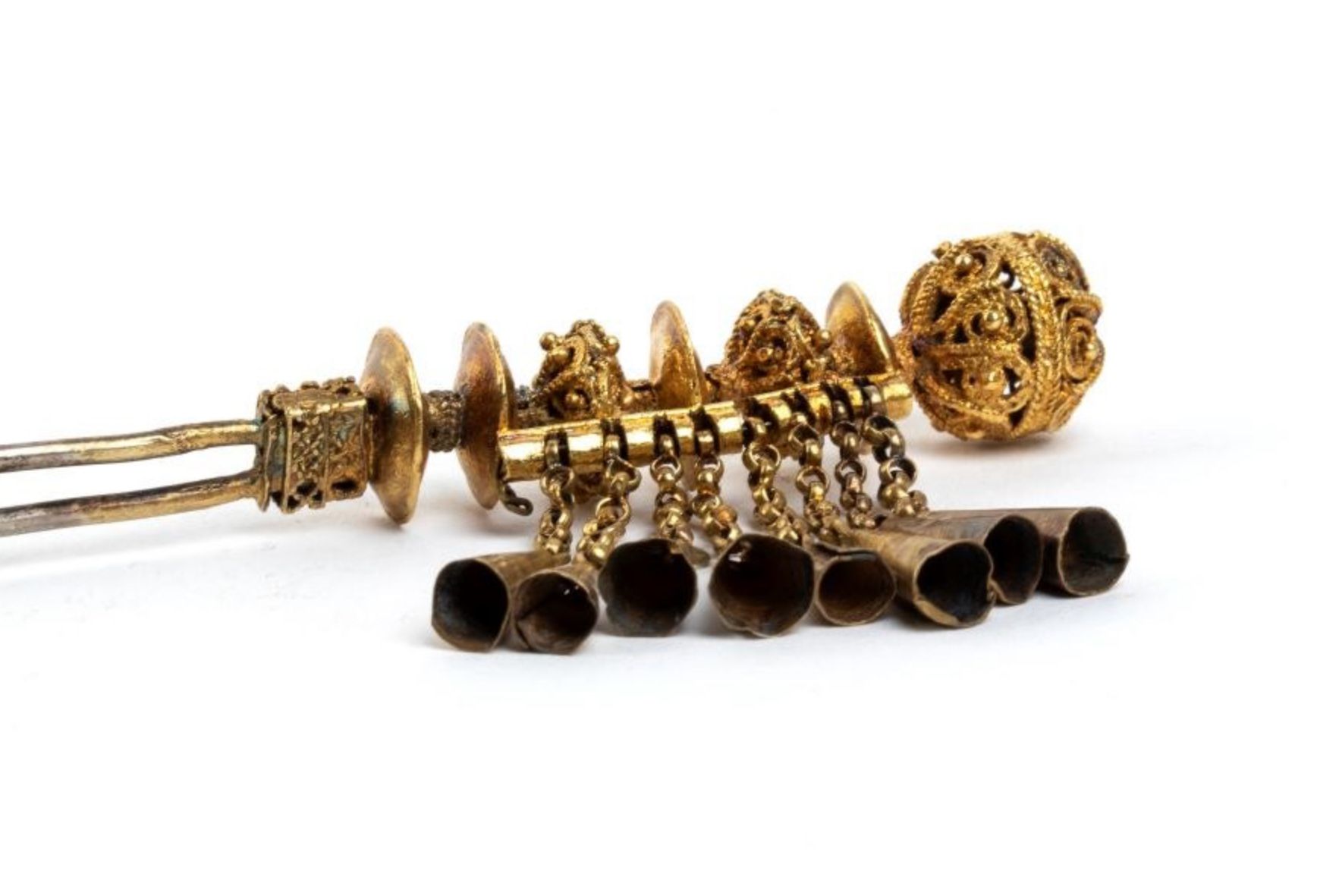Cultural Restitution
SHARE ARTICLE
Is it taking too long for the UK to return its Benin Bronzes? Will legal roadblocks and lingering concerns over their upkeep and security overshadow UK commitments to repatriate Benin objects to Nigeria?
The significant steps Germany, Belgium and the Netherlands are taking to address their colonial legacies follow lengthy reports and commissions examining needs for reparation and terms for returning looted cultural objects.
But recent progress has been patchy. Take Germany. After announcements that German state collections are preparing to transfer ownership of more than 1100 Benin Bronzes to Nigeria (“We are here to right a wrong”, said Germany’s foreign minister Annalena Baerbock returning 20 Benin artefacts last December), concerns about further repatriations have begun to trickle into the German press.
“It’s unclear whether the Nigerian people will benefit from the returns,” exclaimed Die Welt (14 March). And in a stinging criticism of the German federal government and state museums for their lack of attention to the preservation, security and accessibility of the Benin objects Germany plans to return, retired anthropologist Brigitta Hauser-Schaublin wrote: “Nobody seems to care where this overwhelming collection actually goes. The return takes place, as stipulated in the contract, without any conditions, just as if it were gold bars, convertible into cash or jewellery at any time and replaceable.”
Uncertainty about the future location and preservation of objects returned, fear of legal precedents that may bring political and financial consequences, even questions over the moral rights of Nigeria to recover Benin objects funded by the profits of slavery, have all been cited as reasons for stalling repatriation.
But will these concerns frustrate British institutions committed to returning Benin artefacts? Is restitution progress in the UK likely to stall?
So far, there’s been no comparable report commissioned into how Britain should acknowledge its moral responsibilities to former colonial territories. But that omission hasn’t stopped several of Britain's leading university and regional collections from pushing ahead with plans to return their Benin artefacts to Nigeria. The UK’s national collections continue to remain on the sidelines.
Britain's first Benin returns from public collections were predicated on strong moral grounds. But bureaucracy still had to be satisfied. A UK export licence was required by Jesus College, Cambridge before it could return its bronze statue of a Cockerel (known as an ‘Okukor’) and by the University of Aberdeen before returning their 18th century Head of an Oba. Both objects were physically returned to Nigeria in February 2022.
When it comes to the physical act of export back to Nigeria, museums were reminded by arts minister Lord Parkinson that a Benin artefact cannot be returned without following the same procedures required for exporting any other work of art. But in the case of most Benin objects, this shouldn’t be onerous. Most Benin artefacts are unlikely to qualify for deferral owing to the large number of similar items in British public and private collections. There’s also a problem establishing a valuation in a marketplace haunted by fakes and restitution.
The second wave of repatriations is going to be much larger than the first and the speed of response to the latest appeals for returning Benin artefacts may have taken Nigeria by surprise.
Since January 2022 when Nigeria’s National Commission for Museums and Monuments (NCMM) launched their latest round of restitution appeals, four UK institutions have announced Benin repatriation programmes - The Pitt Rivers Museum, Oxford, The University of Cambridge’s Museum of Archaeology and Anthropology (MAA), Glasgow Life Museums and Horniman Museum and Gardens.
Up to now, only four of around 200 Benin artefacts earmarked for transfer in this second wave of repatriations have actually been returned. But this doesn’t imply a lack of progress. Fast-tracking returns by UK institutions is not usual museum practice.
The Horniman and MAA Cambridge have now both completed the legal arrangements required for transferring ownership to Nigeria and securing the endorsement of the UK’s Charity Commission has been a critical step in the completion of these arrangements. Put bluntly, ownership of objects transferred from a UK collection with charitable status (a status that applies to most UK museums) is only possible if the Commission is satisfied there’s a legitimate case for transfer.
It took just seven months after the NCMM formally requested the return of the Horniman’s collection of 72 Benin artefacts before the Charity Commission endorsed their submission (August 2022). Among terms agreed with the NCMM was the immediate return of six selected Benin objects. However, at the agreed date of handover (November 2022), only the four objects that didn't require export licences could be physically transferred. Because the other two objects are made of ivory, CITES licences are still required. I’ve been told these licences are now in place and arrangements to return these two items to Nigeria can now proceed.
The submission by MAA Cambridge to transfer 116 Benin objects they've connected to the raid on Benin City has also been endorsed by the Charity Commission and the University reports that it’s now working with the NCMM “to finalise next steps”. Recent NCMM developments (see below) may frustrate the date of handover, but we understand this is still due for sometime in 2023.
Meanwhile, Oxford’s Pitt Rivers Museum and Ashmolean Museum have more work ahead of them. Their application to transfer legal title of 97 Benin objects was submitted at the same time as the Horniman's (August 2022), but the Commission reported they need more information. This delay has been welcomed by supporters of the Restitution Study Group, a group campaigning for slavery reparations, which is seeking to use this delay to scrap Oxford's plans for repatriation altogether. The group's class-action lawsuit filed in October 2022 failed to halt the legal transfer of Benin artefacts from the Smithsonian Institution. It seems likely their protest against Oxford's transfer of legal title will also fail. Meanwhile, the Museum has told me they plan to resubmit their case, “following a further meeting of the University Council to be held in due course.” But they didn’t say what further information the Commission has requested.
A wider strategic approach by Glasgow Life to returning artefacts reflects their view that objects unsuitable to be held in a museum collection should be returned without any requirement to set conditions.
In April 2022
Glasgow City Council
met to agree the transfer of 19 objects connected to the 1897 raid. But unlike the other three collections, the status of Glasgow Life Museums means they are not required to seek Charity Commission endorsement before transferring legal title. A single meeting with a delegation from NCMM was held last June, but more detailed discussions are still required before logistical arrangements and a date for handover can be agreed.

Bronze crocodile or lizard from Owo, Nigeria, possibly from Benin City.
Courtesy of Kelvingrove Art Gallery and Museum, Glasgow
A spokesperson from Glasgow Life Museums believes their ivory objects will be exempt from an export ban because they “pre-date 1918 and are of outstanding cultural and historical value”. The sacred wooden items from Glasgow’s Benin collection (which have never been on exhibition) also await evaluation in case they require a CITES licence.
In common with the agreement the NCMM has reached with German state museums, the opportunity exists for British collections to retain some of their Benin items on the basis of extended loans. In the case of the Horniman, this is expected to number as many as 66 Benin objects. Cambridge and Oxford have yet to announce how many objects they may end up retaining; Glasgow will continue to display objects that post-date the 1897 raid, but I understand that loans of the 19 other objects are still central to future discussions with the NCMM.
These extended loan arrangements may not last forever, and probably only until new museum building initiatives underway in Benin City have been completed.
It's a convenient arrangement for Nigeria. But there are reasons why some Western institutions considering repatriation still believe that present museum standards in Nigeria continue to be a major stumbling block to returning further Bronzes. Memories of the multiple thefts that plagued Nigerian museums between 1980 and 2000 have tainted recent negotiations and, if views in the German media are anything to go by, still colour objections about repatriation today. If Nigeria is serious about recovering its cultural heritage, attracting and engaging with global audiences, it simply cannot afford the embarrassment of a new cycle of thefts and poor administration.
But a recent development may put at risk Nigeria's plans to engage and recover the nation's cultural heritage as quickly as it might wish. Just weeks before he was due to leave office, Nigeria's President Muhammadu Buhari issued a declaration that on the face of it delivers a solution to the long-running dispute over who should have future custody of the nation's Benin artefacts. However, it could have a more damaging effect, derailing current and future plans for repatriation.
The decree of 23 March* orders that “ownership of artefacts looted from the ancient Palace of the Oba and other parts of Benin Kingdom be and is vested in the Oba.” As well as transferring custody rights to Oba Ewuare II, it also gives him future responsibility to engage with national and international institutions about these artefacts, as well as - crucially - selecting where they will be held: either in his own Royal Palace, in some other museum within Benin City, or in any other place he and the Federal Government may consider secure.
The decree might have been intended to resolve divisions between the Oba and Edo State Governor, Godwin Obaseki. But handing over such a large measure of control to the Oba will unsettle many Western institutions. In particular, it will confuse members of the Benin Dialogue Group, whose members have already committed significant amounts of money to help construct the new Edo Museum of West African Art (EMOWAA). That is where they were told all future loans would be exhibited. Up to recently, the Museum's website claimed it was going to become "the home of the largest collection of Benin Bronzes in the world." But that statement has now been removed because the Oba has other plans. He's been trumpeting a vision that involves upgrading the rival Benin Royal Museum as his preferred destination for returning Benin artefacts.
Will this development affect UK plans in train to repatriate Benin Bronzes? The declaration has still not entered into force and we understand that NCMM is in negotiations with Nigeria's Ministry of Justice to revise aspects of the declaration. The outcome of these negotiations will be critical because all four UK institutions have agreed terms that make NCMM responsible for deciding where returning objects will be exhibited. Up to now, NCMM has always supported the EMOWAA initiative. With President Buhari heading out the door, future negotiations will depend on the views of his successor, President-elect Bola Tinubu. But it's unlikely NCMM will be happy to cede control over the nation's cultural policy and direction quite so easily.
None of these developments will shift the dial at the British Museum where, despite the size of their enormous Benin collection, trustees remain unable to transfer ownership of any Benin objects under the terms of the British Museum Act. However, were all Nigerian parties, especially the NCMM, to get behind this new declaration, it's possible it may start to nudge more Western collections to see their way through the other roadblocks.
Pushing ahead with the return of more Benin Bronzes by UK institutions this year still looks inevitable. Though, ironically, it lies in Nigeria's hands at what pace objects can be physically returned. Perhaps overwhelmed by the positive response their campaign has attracted and frustrated by the latest custody development, it may welcome a slower pace - at least until it has the agreement, capacity and resources to secure and preserve their returning Benin heritage.
* Notice of Presidential Declaration on the Recognition of Ownership and an Order Vesting Custody and Management of Repatriated Looted Benin Artefacts in the Oba of Benin (Government Notice No.25, dated March 28th, 2023)
After this was written....
We prepared this review of UK plans to return Benin Bronzes before the wider dissemination of the President's declaration on the 23 March. Since then, concerns about its implications have escalated dramatically. Well laid plans by western museums and the NCMM have been thrown into confusion; the NCMM is recommending that western museums wait and see what evolves before reacting. Meanwhile, German opposition parties - the Christian Democrats and the extreme right Alternative for Germany - have both criticised their government, calling their approach to restitution a "failure" as a result of failing to impose any conditions. In the meantime, other voices are equally insistent that Nigeria, not western governments, should decide the future stewardship of returning artefacts. Defending their approach, Germany's coalition government reminded the opposition that meddling in the decisions of another country might be considered another form of colonialism.
Photo: Benin Copper Alloy Plaque, No. 99.229
Courtesy of Horniman Museum and Gardens
More News



